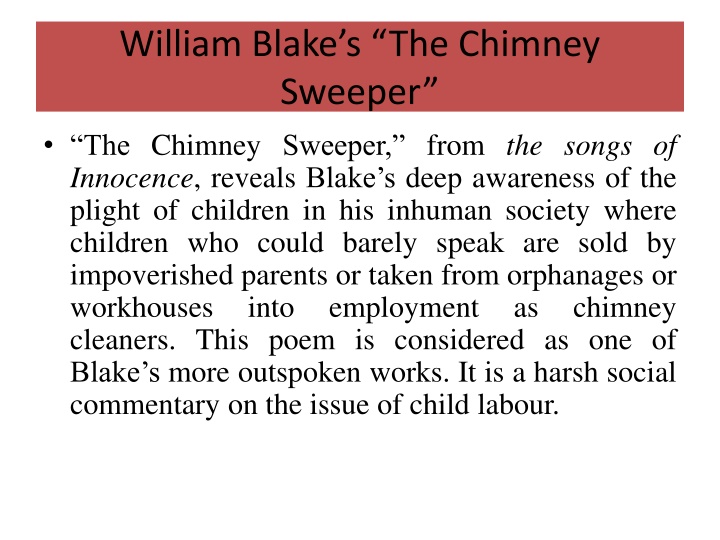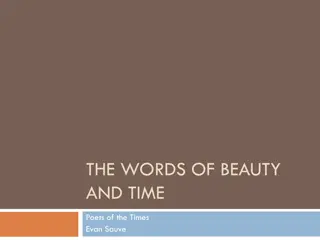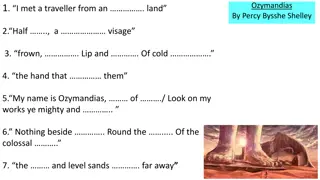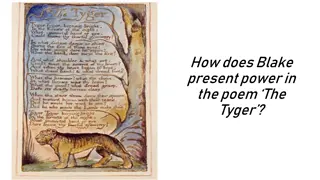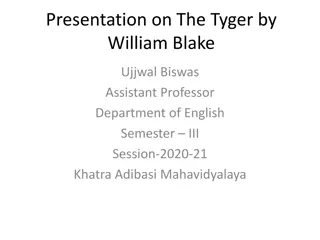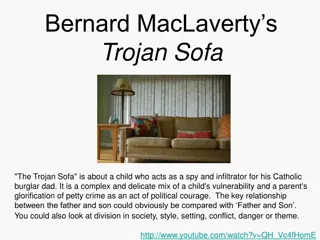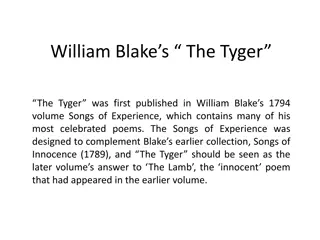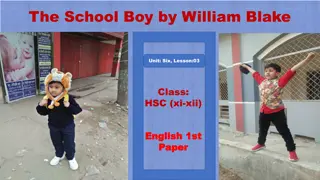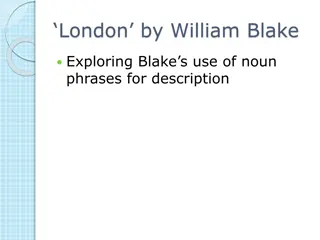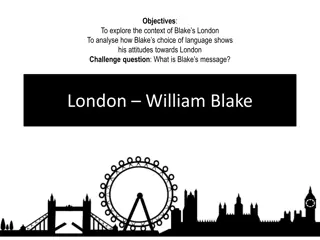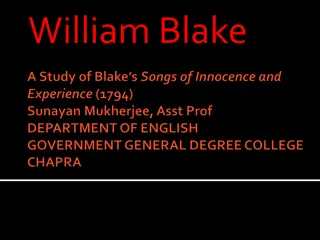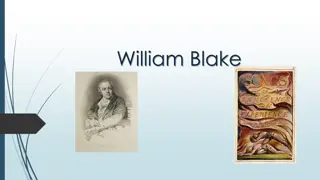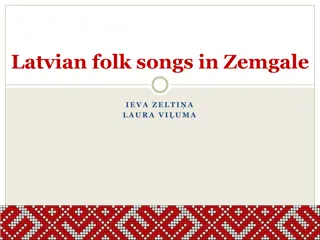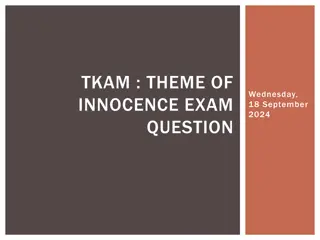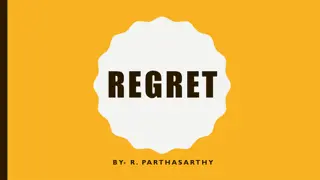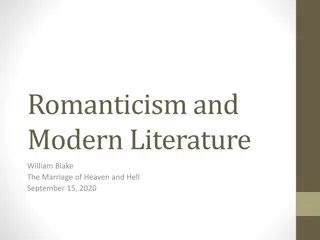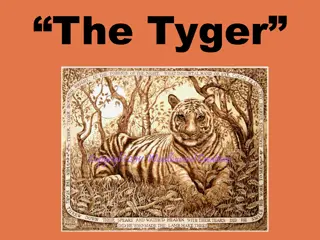Analysis of William Blake's "The Chimney Sweeper" from Songs of Innocence
William Blake's "The Chimney Sweeper" from Songs of Innocence sheds light on the plight of children in a harsh society where young boys are forced into chimney sweeping. Blake criticizes child labor and injustice, portraying the innocence and exploitation of these young workers. The poem delves into themes of oppression, liberation, and the contrast between the grim reality of their lives and a dream of freedom.
Download Presentation

Please find below an Image/Link to download the presentation.
The content on the website is provided AS IS for your information and personal use only. It may not be sold, licensed, or shared on other websites without obtaining consent from the author.If you encounter any issues during the download, it is possible that the publisher has removed the file from their server.
You are allowed to download the files provided on this website for personal or commercial use, subject to the condition that they are used lawfully. All files are the property of their respective owners.
The content on the website is provided AS IS for your information and personal use only. It may not be sold, licensed, or shared on other websites without obtaining consent from the author.
E N D
Presentation Transcript
William Blakes The Chimney Sweeper The Chimney Sweeper, from the songs of Innocence, reveals Blake s deep awareness of the plight of children in his inhuman society where children who could barely speak are sold by impoverished parents or taken from orphanages or workhouses into employment cleaners. This poem is considered as one of Blake s more outspoken works. It is a harsh social commentary on the issue of child labour. as chimney
William Blakes The Chimney Sweeper Blake felt that great emphasis should be placed on the safety of these children. He despised the injustice and basic human rights violations that had become part of modern life. The poem is a dramatic monologue, spoken by a sweep. It consists of six quatrains.
William Blakes The Chimney Sweeper The first quatrain highlights the fact that young boys are forced or apprenticed by their parents to work as chimney sweepers. Blake, as an advocator for children s rights, exposes the dangers of this job and their exploitation in this line of work.
William Blakes The Chimney Sweeper In the second quatrain, Blake introduces Tom Dacre, a new recruit or a fellow chimney sweeper, who is upset about his lot in life and is consoled by the narrator, who reassures Tom that the shaving of his head is a good thing. This quatrain contains a simile. Tom s hair is compared to a lamb s wool. The implication is that both the child and the lamb are seen as symbols of innocence and that the cutting of the lamb s wool is just like the shaving of the boy s hair. This shaving is a common practice and a common sight in the 19thC. England.
William Blakes The Chimney Sweeper The second part of the poem focuses on Tom s apocalyptic dream or vision. Tom saw that thousands of sweepers were locked up in black coffins and that an angel had come to set them free from the oppressive conditions they found themselves in. These grim chimneys may have seemed like living coffins to these young boys or occupants, who lost their lives while doing their jobs.
William Blakes The Chimney Sweeper This quatrain focuses on the unlocking of the coffins of the chimney sweepers by an angel and their being washed clean in a river. It is a Christian allusion to the Christ's resurrection and baptism. Central to this poem is the contrast between the grim realities of the sweepers lives and the ecstatic vision of liberty found in Tom s dream. This vision is symbolic of the child s innocence . It shows how optimistic he is even in the worst of his situations.
William Blakes The Chimney Sweeper In his dream, Tom is able to recover joy. He imagines that he is free, running and playing in the open nature without being subjected to the pressures of city life. There is also a hint of criticism in Tom s dream. The angel s focus on the boy and his being a and doing their duty, is taken as an ironical note directed against the common moral teaching which encouraged employers to manipulate children. In this poem, Blake is not only questioning religion ( the established church) , but also the government for allowing and encouraging such a dangerous inhuman practice. good boy and
